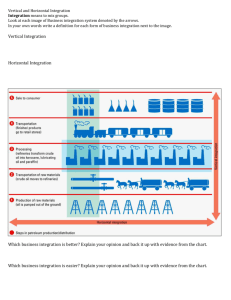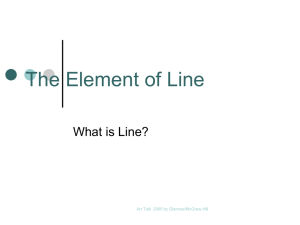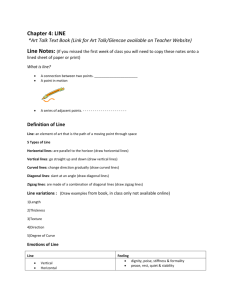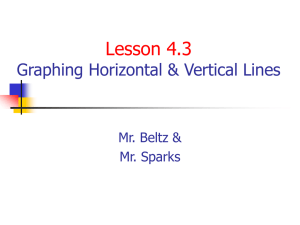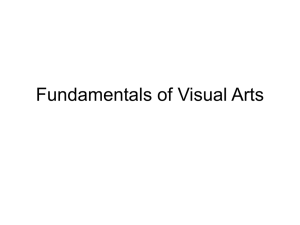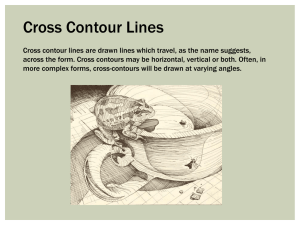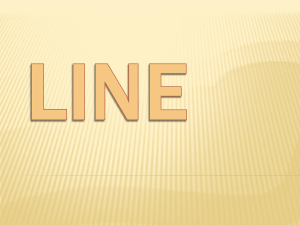Line in Art: Types, Qualities, and Emotional Impact
advertisement
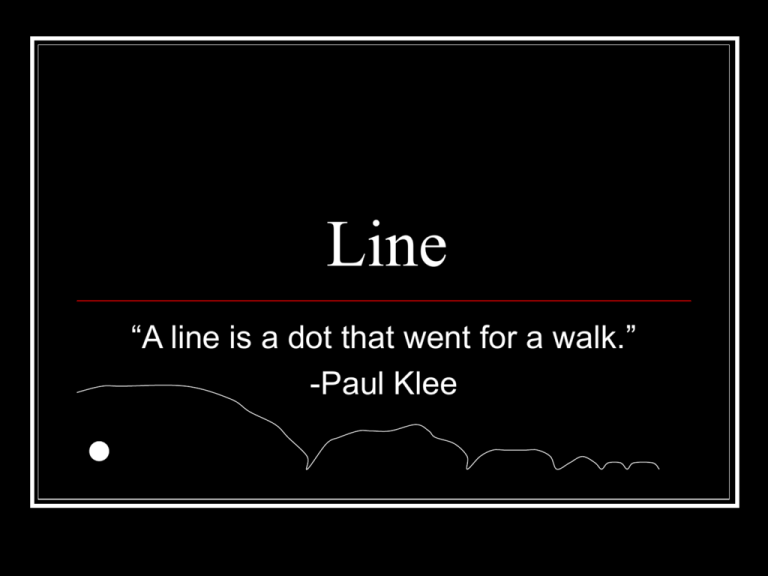
Line “A line is a dot that went for a walk.” -Paul Klee In art, line is a path left by a point moving across a surface. It is one of the Elements of Art. Lines can be made with pencils, pens, brushes, crayons, markers, etc… Types of lines Vertical lines Horizontal Lines Diagonal lines Parallel lines Actual lines Implied lines Vertical lines Lines that go up and down. These lines express height, strength, order and spirituality. For example… …These strong pillars convey strength See how they hold up this building even after hundreds of years have passed… Order Look at how tall this Gothic cathedral is. Where do your eyes go? Horizontal lines Lines that are parallel to the horizon. (Get it horizon = horizontal) Horizon Horizontal lines suggest a feeling of rest or repose, because things that are parallel to earth are at rest in relation to gravity. What are some things you can think of that are at rest when they are horizontal? People Sleeping… The ocean. Just thing about how water is when it is not horizontal… Diagonal lines Lines that may slant in any direction. Since they are unstable in relation to gravity, these lines suggest motion, because they are either about to fall, or are already in motion. As is the case for these dancers… …And these dancers … And these runners Parallel Lines Are the same distance apart and never intersect with one another. Like these train tracks Are these lines parallel? Actual lines Lines that you can actually see. Implied lines Lines that you cannot see, but you can imagine they are there. Like this dotted line. It doesn’t actually connect, but our eyes read it as a line. Where is the implied line here? Where do you eyes go? How about here? In this painting of The Last Supper, The focal point is clear, Christ. But why do our eyes go to him? What implied lines lead our eyes to him? Quality of line Lines can be thick, thin, continuous, wavy, graceful or rough. Think about what each one of these qualities would represent… Describe the quality of the line. What emotion would you assign these lines? What about these? How are these different from the previous ones? How do these lines make you feel? Lines are an important element in Asian art, such as in this painting. Notice how the lines resemble Chinese Calligraphy. Chinese Calligraphy is considered an art. The outlines of these paintings, or contour lines are an important part of the drawing itself. Notice how graceful the black lines are. These fine curvy lines become thin and thick and are created with special brushes. Another good example of contour lines. Contour drawings look a bit like coloring book outlines. And This is a blind contour drawing. These drawings are created by drawing a subject (person, still life, object, etc…) without looking at the paper. These drawings can be loose and fun, as long as you understand that they are not meant to be perfect or look realistic. Now it’s your turn to experiment with line!
